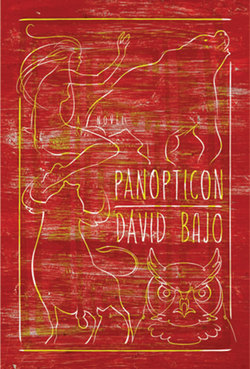Читать книгу Panopticon - David Bajo - Страница 9
На сайте Литреса книга снята с продажи.
4.
ОглавлениеOutside, the downtown air smelled of the bay, a barnacled hull. Rita and Klinsman shouldered their way through the 5th Avenue crowd to catch the southbound trolley. She got slightly ahead of him, always the photographer, always in front. She wore black boots, heeled to give her some height and vantage. Otherwise all her subjects would look nose-up and arrogant, she claimed. The black boots and jeans made her look cholo. “Chola,” she would always say, correcting him. Then she would push her hip toward him, lifting, twisting a little, pinch a little flesh. “La la Cholitas. Never quite down enough for the clothes we wear.”
She looked back to him as they neared the trolley. “We can take my car.”
“You’ve been drinking.”
“Only beer. And whatever was in those little green glasses the wrestlers were serving.”
“I hate cars,” he said.
“I hate the trolley this time of night. The mozos and sailors look at me like I’m a dancer going to the Bambi Club or something, with these cameras as props for some freak show. Not hot enough to work without props. You know?”
“I’ll carry your gear.”
“That will look much better.”
They rode the trolley south to San Ysidro, Rita getting the window seat. She gazed at the blackness of the Pacific beyond the stretch of beachfront lights. She leaned her head to the glass and he watched the reflection of her face, her eyebrows slanted, melancholic, her rounded lips still as a single piano note. Sometimes she could catch sight of the waves, white and featherlike across the black shore. He wondered where she was, where she was going. He was surprised to hear his name.
“Aaron,” she said, still gazing through the window. “You didn’t call those people up north. You didn’t do anything. Again. You didn’t do anything. What are you going to do?”
“I’m going to travel Mexico. Then Prague with my uncle. See what I find. Write something.”
“We’re too old for those kinds of answers. We’re already too old for what we do now.”
“Having second thoughts?” he asked.
“Only for you. I like my plan. I leave for Manzanillo next week. Day after we finish here.”
Klinsman was surprised, a wave suddenly lifting higher as it neared, doubling itself. “You’ve moved it up.”
“Yeah.” She rolled her forehead against the glass, closed her eyes. “I keep moving it up.”
“You should’ve told me.”
“I just did tell you. You’re the first one I’ve told. Chingadero. Chingadero taking me to some motel on the border.”
After the Palm City stop, the tracks bowed away from the sea and the trolley filled up more with Mexicans getting back across after very long work days. Most of them looked too tired to stare at anything, certainly not anything as complex as Rita, with her hair gaining more and more freedom from its ponytail, her brow mourning, her lips holding stoic and full.
Klinsman wished she hadn’t mentioned Edwige Fenech back at Café Cinema because here the trolley was soaring above the land of his youth, where the old ranches and horse farms were now buried under the orange sodium lights of cheap subdivisions and strip malls with dollar stores in them. In his youth he’d read books in his room by the light of a TV, almost always set to Channel 12, almost always after 2 A.M., when he would wake for good and then wrestle insomnia until dawn. There were the Santo movies. And then there were the Italian giallos, dubbed twice-removed into Spanish, so out of sync that the voices seemed to float between the actors like noise clouds, sometimes drifting so far as to put women’s voices over men’s lips. But whenever Edwige Fenech appeared on screen, Aaron would thumb his place in whatever book he was reading. He would hear her voice or her music or catch the startling dark-pale contrast of her and sense that he should look up. Some of the giallos were haphazardly edited for television, but many passed through unconcerned Mexican censors. Who would watch Canal Doce at 2 A.M.? Back then, Aaron felt he was the only one.
So he saw Edwige Fenech, all of her, when he probably shouldn’t have seen her. It took a long time, well after he quit watching Channel 12 and all television for good, for him to realize that women did not look like her. Even through college, when he had moved just out of range of border television, her image had cursed him with a kind of relationship trip switch, a prompt inside him: Time to end this. Time to draw back. There is something more out there for you.
That more went well beyond Fenech and her mascara beauty, high raven hair, pale thighs, and rocketship breasts. Her characters were always so worldly, above all men, apart from all other women, but troubled with secrets as dark as her eyes. After he matured enough to cringe at his own superficiality, she still remained a shadowy impression, a promise at the door.
While doing a story on border radio and TV for the Review, he had been shown the storage room for the Channel 12 broadcast station in Baja. There he’d found an old cardboard vodka box containing the giallos. They were on old reel-to-reel videotape and had disintegrated well past salvage. He had dipped his hands into the broken and tangled strands of tape, twirled them about his fingers as though they were a lover’s cool hair.
